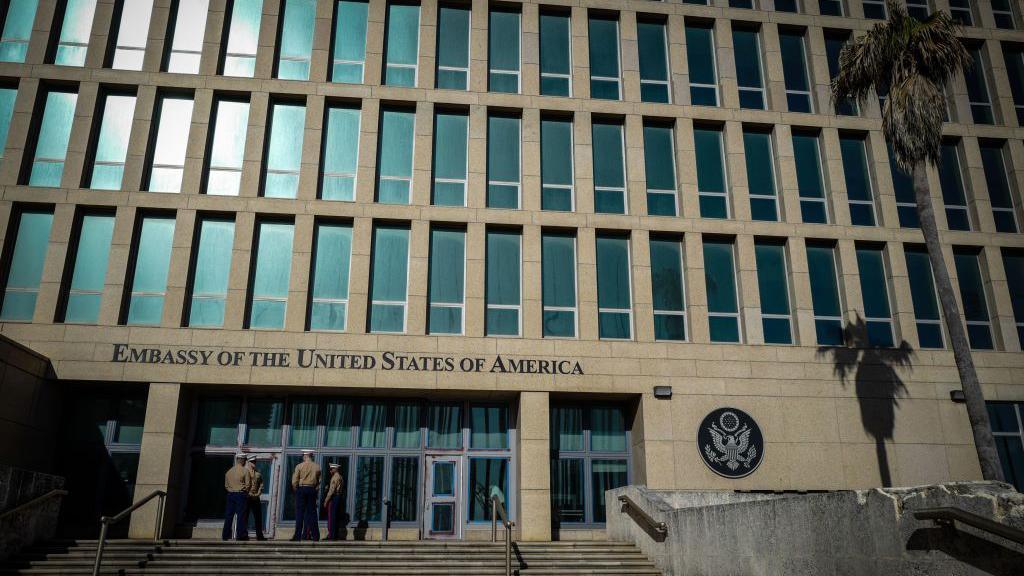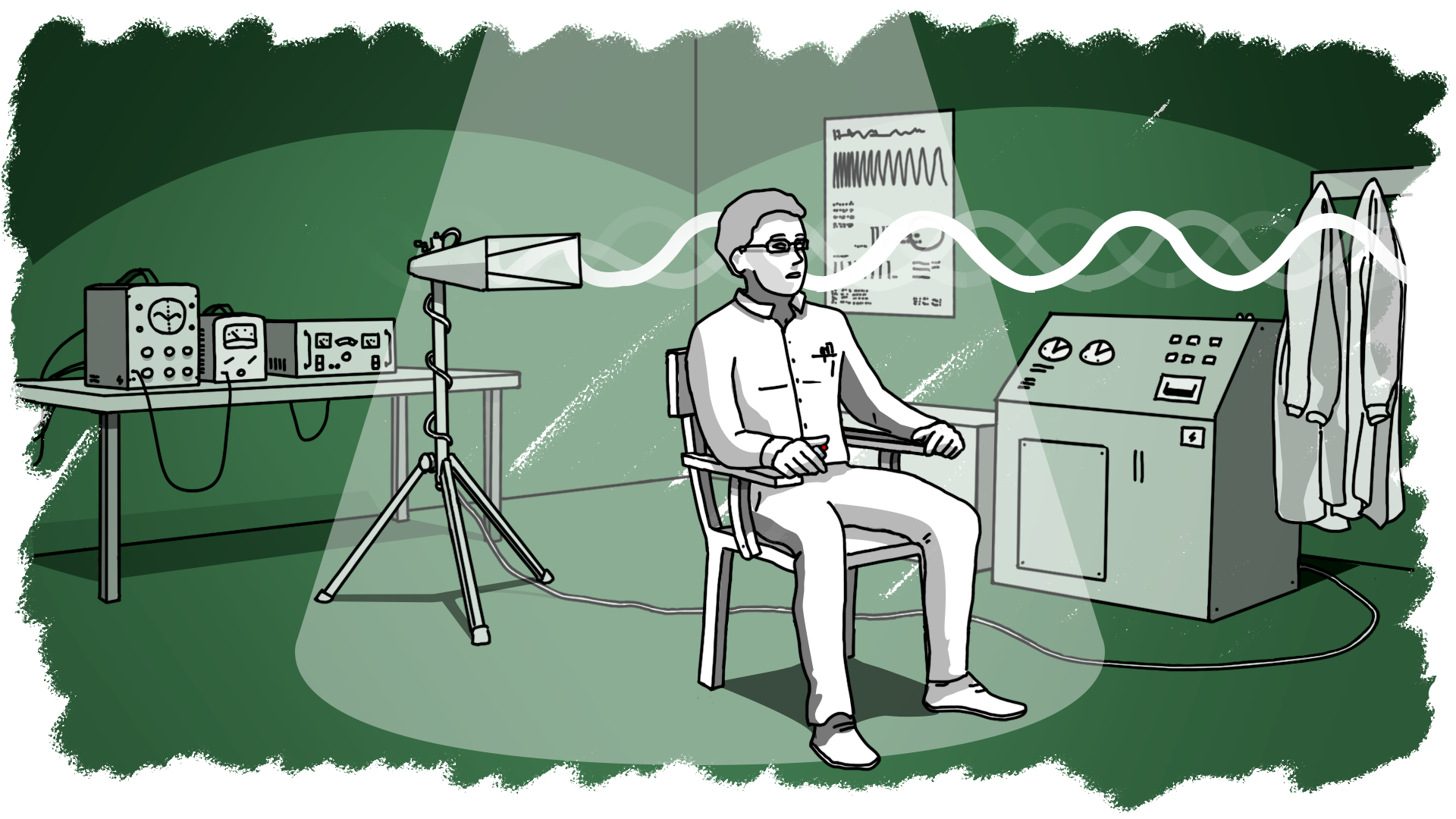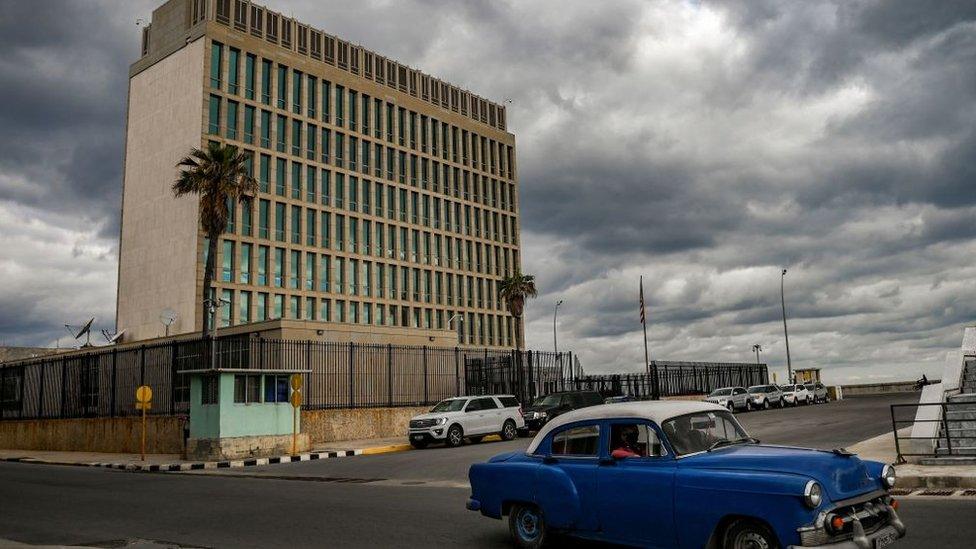'Very unlikely' foreign actor linked to Havana Syndrome, US intelligence says

The syndrome was first reported by diplomats at the US embassy in Cuba in 2016
- Published
Most of the US intelligence community believe it is "very unlikely" an international power is linked to mysterious symptoms experienced by US diplomats and their families.
However, in a new report published on Friday, two of the seven US intelligence agencies and departments say foreign actors could have developed radiofrequency technology associated with "Havana Syndrome" symptoms experienced by US diplomats and their families.
US officials said the two intelligence bodies "changed their judgement" based on new reporting on the progress of international energy research programmes.
The mysterious illness has affected US personnel stationed around the globe in recent years.
One intelligence body (it is not specified which one) said new information makes it "likely" that a foreign actor could use radio frequency to cause "biological effects" consistent with some of the Havana Syndrome symptoms.
In their latest assessment the US intelligence community continue to look into those symptoms, known as "anomalous health incidents" (AHIs).
Those affected have reported unexplained symptoms such as dizziness. The US intelligence community emphasised that it is not calling into question "the experiences or suffering" of US diplomats and their families.
However, the intelligence community said it continues to hold the view that, according to medical research, the symptoms - or AHIs - reported by those affected "do not have a consistent set of physical injuries".
And five of the seven intelligence agencies and departments deemed it was "very unlikely" that a foreign actor used "a novel weapon or prototype device to harm even a subset" of US personnel and their families.
Havana Syndrome was first publicly reported in 2016, when US diplomats in Cuba reported getting sick and hearing piercing sounds at night.
Other cases have been reported around the world, from Washington to China.
Such reports sparked speculation of an attack by a foreign power using an unspecified sonar weapon.
The reasoning behind the change in stance by two of the US intelligence bodies is laid out in Friday's report.
One intelligence body said there is a "roughly even chance" that a foreign power used "a novel weapon or prototype device to harm a small, undetermined subset" of US personnel and their families, who then "reported medical symptoms or sensory phenomena as AHIs", as quoted by the assessment.
The second intelligence community agency or department to make a similar argument agreed that there is a "roughly even chance" that a foreign actor would have developed a novel weapon "that could have harmed a small, undetermined subset" of US personnel and their families.
But the intelligence body stopped short of linking it to the reported Havana Syndrome phenomena, saying it is "unlikely a foreign actor has deployed such a weapon in any events reported as possible AHIs".
Related topics
- Published9 September 2021

- Published1 April 2024
